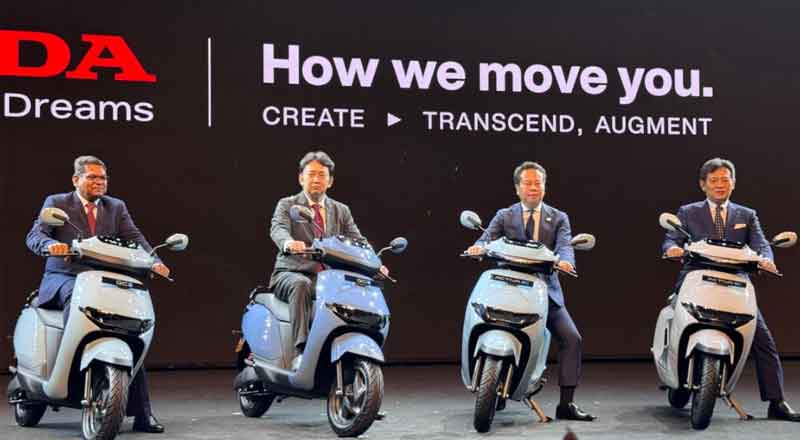As the world accelerates towards sustainability, electric vehicles (EVs) are emerging as the frontrunners of a cleaner, greener future. Offering innovative designs and energy-efficient technology, EVs are reshaping urban mobility. The latest addition to this revolution is Honda Motorcycle & Scooter India’s unveiling of the Activa e and QC1 electric scooters. With these models, Honda not only strengthens its presence in the Indian EV market but also contributes to its global vision of launching 30 EVs and achieving carbon neutrality by 2050.
Here’s a closer look at these two groundbreaking scooters and how they fit into the expanding EV ecosystem.
The Activa e: A New Take on a Familiar Name
Honda’s Activa e is a tribute to its immensely popular internal combustion engine (ICE) counterpart, the Activa. Retaining the original’s name and frame, the Activa e features a sleek and minimalistic design tailored for modern electric mobility.
Key Features of Activa e
Swappable Battery System:
The Activa e is powered by two 1.5 kWh swappable batteries located under the seat. This setup allows riders to replace depleted batteries with fully charged ones at designated swapping stations, ensuring convenience and minimal downtime.
Powerful Electric Motor:
The motor delivers a base output of 4.2 kW (5.6 bhp), which can peak at 6.0 kW (8 bhp). This robust performance offers a smooth and responsive ride.
Range and Modes:
With a range of 102 km on a single charge, the Activa e caters to daily commuting needs. Riders can switch between Standard, Sport, and Econ modes for optimized performance or efficiency.
Design and Technology:
The Activa e embraces contemporary aesthetics with a clean apron housing LED headlamps, turn indicators, and a distinctive tail lamp unit with an “Activa e” badge.
QC1: Compact and India-Centric
Designed exclusively for India, the QC1 caters to short-distance urban travel with a focus on simplicity and practicality.
Key Features of QC1
Fixed Battery System:
Unlike the Activa e, the QC1 uses a 1.5 kWh fixed battery pack. Charging is straightforward with a cable connected to a socket on the floorboard.
Compact Motor Performance:
The QC1’s in-wheel motor generates power outputs of 1.2 kW (1.6 bhp) to 1.8 kW (2.4 bhp), ensuring a seamless ride for city commutes.
Range and Features:
The QC1 offers a respectable range of 80 km per charge. It is equipped with a 5-inch LCD instrument panel, under-seat storage, and a USB Type-C charging socket, blending functionality with modernity.
Honda’s Commitment to Sustainability
Honda’s move into the EV space aligns with its global sustainability goals. By electrifying its two-wheeler segment, Honda is addressing the growing demand for eco-friendly transportation while contributing to carbon neutrality in production and use.
The Growing EV Ecosystem
Honda’s Activa e and QC1 join a growing list of electric scooters in India. Competitors in this segment include:
Ola S1 and S1 Pro: Known for their advanced features like AI integration, longer ranges, and fast charging.
Ather 450X: Offers performance-focused riding with premium build quality and smart features.
TVS iQube: A balance of affordability and efficiency, with impressive urban commuting capabilities.
Bajaj Chetak: A modern take on a classic design, with a focus on durability and convenience.
Globally, Honda’s electric offerings complement models like the Niu NQi and Vespa Elettrica, showcasing its expertise in this space.
A Step Towards Electrifying India
The Activa e and QC1 mark a significant milestone in India’s EV journey. By addressing the diverse needs of urban commuters—whether through the range-enhancing swappable batteries of the Activa e or the compact, no-frills approach of the QC1—Honda is paving the way for widespread EV adoption.
As the EV revolution gains momentum, innovations like these will play a crucial role in reducing carbon footprints, easing dependence on fossil fuels, and creating sustainable urban landscapes. With its robust lineup and commitment to environmental goals, Honda has set a strong precedent for the future of electric mobility in India and beyond.
(With inputs from agencies)





